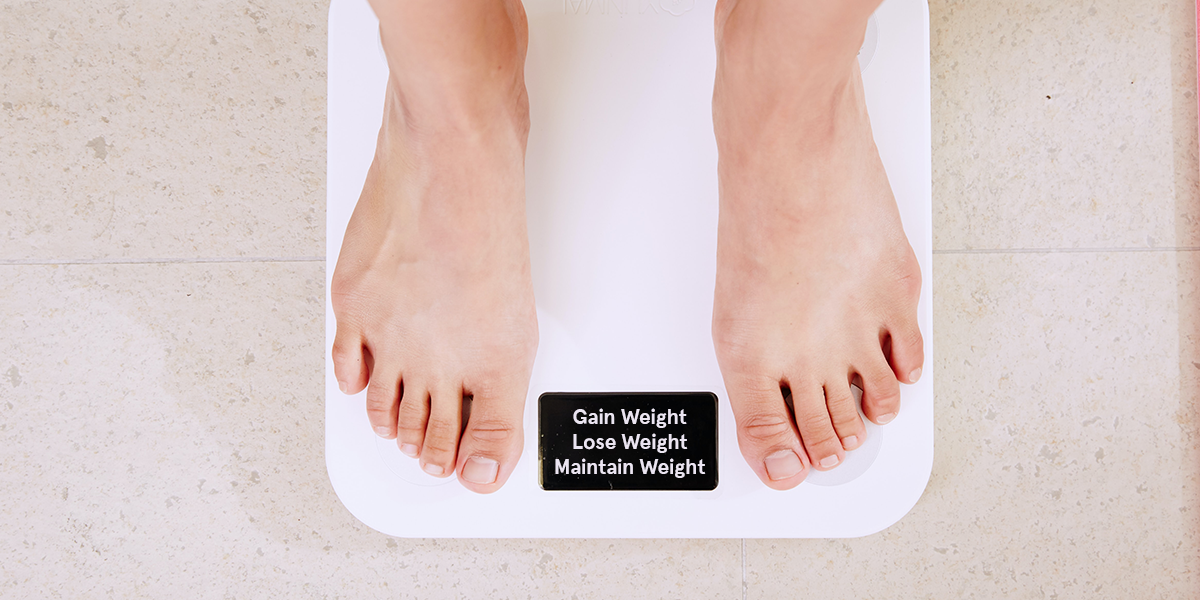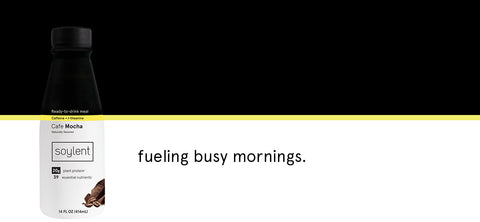
Written by: Dietitian - Nicolette DeAngelis, RDN, LDN
Whether you’re looking to lose, maintain or gain weight, a meal replacement shake or powder can serve as a useful tool to help reach your goals. Soylent drinks and powders are an impressive meal replacement option since they are formulated to contain an optimal amount of carbohydrates, protein, healthy fats, vitamins and minerals similar to that found in a well-balanced meal. A Soylent drink can fit into your day regardless of your health goal:
- Weight loss: A meal replacement shake – like the Soylent ready-to-drink meal, can offer a pre-portioned, calorie controlled option for an individual working to lose weight. The American Academy of Dietetics notes that meal replacements as part of a structured weight management program can help support weight loss goals. These meal replacements also help individuals manage portion sizes and adhere to behavior change1.
- PRO TIP: Wondering which meal to replace with a shake? Try picking the time of day at which you typically overeat or make poor food choices.
- Weight gain: For some individuals, weight gain may seem harder than weight loss. It can be difficult to eat sufficient amounts of nutrient dense calories throughout the day, especially between meals or on-the-go. In this situation it may be easier to reach for a ready-to-drink option like Soylent.
- PRO TIP: Add in a meal replacement shake between meals as a snack, as well as eating at least 3 nutritionally adequate meals each day, to help support weight gain goals. Consult with a Registered Dietitian or physician to develop the best weight gain plan for you.
- Weight maintenance: A meal replacement product can also seamlessly fit into your lifestyle if you’re looking to maintain your weight. Instead of skipping a meal on a busy day, a Soylent Drink paired with a piece of fruit or small salad can serve as a nutritious option to keep your nutrition on track. Alternatively, try drinking half of a Soylent for a midmorning snack and saving the rest for a post-workout recovery option.
How much should you weigh?
Wondering what you should be aiming for with your weight? Each person has a unique “ideal” healthy body weight that depends on their health goals, fitness level, health conditions, and lifestyle. This “ideal” weight looks different for everyone, and there is no one size fits all approach to take when reaching an optimal weight. Weight status can be affected by diet, lifestyle, activity level, cultural influences, and even genetics.
Body Mass Index, or BMI, is a clinical, numerical indicator of weight status. It is calculated by taking into account a person’s weight in relation to their height.
- Underweight: <18.5
- Normal weight: 18.5-24.9
- Overweight: 25-29.9
- Obese: >30
However, BMI should not always be the sole indicator of health status. For example, an athlete with a lot of muscle is going to have an increased weight for their height and may have a BMI >30. However, they do not appear obese. Conversely, an older adult who has lost a lot of muscle mass and gained some body fat may still have a normal BMI but have increased weakness and be at risk for falls.
PRO TIP: Instead of solely focusing on BMI, other factors should be taken into consideration when evaluating weight and health status. The consumption of a nutrient-dense, balanced diet, regular exercise, not smoking, and moderate alcohol consumption can all help to paint a better picture of overall wellness. Discuss your weight status with your physician to make a goal that is best for your individual needs.
References:
- Academy of Nutrition and Dietetics Evidence Analysis Library. “Adult Weight Management Guidelines”, Academy of Nutrition and Dietetics. Accessed 23 July 2020. https://www.andeal.org/topic.cfm?menu=5276&cat=4690





